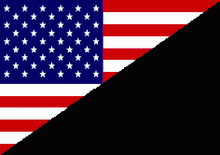So today we will actually discuss liberty.
So here we are, free to do whatever we want. So we pose a question. If you could ONLY do one thing what would that be? Well, I don't know about you, but I'm going to eat. So I can either grow my own food or trade something of value for food. Most people trade their time (work) for the necessities of life. Now that we got the basics out of the way we can spend our time doing other things. Some people might want to work more so that they can obtain more goods. Other people might want to read books, hang out with friends, or read blogs. What ever you want to do you have the liberty to do it. The main thing is that everything that transpired is voluntary. Your employer wanted to hire you and you wanted to work for that pay. The only limit is what other people will agree to do.
Now say someone wanted to come and take the fruit of your labor. You might not agree to give up your goods. So it might happen that the person will threaten harm if you don't cooperate. This is an example of a violation of liberty. If someone threatens harm you they are infringing on your liberty. It makes no difference whom does the threatening or how they threaten. An example of a liberty violation is taxes. If you want to pay taxes then your liberty is not being violated. If you don't, then your liberty is being violated.
This idea is a little hard to wrap your head around at first. Life without taxes, what would it be like? Am I crazy? Perhaps, but then again the
In later posts we will discuss some of the ways that securing liberty for ourselves should change our social institutions. Ultimately, with true liberty, society will be much more flexible.



1 comment:
I want to contest the concept of self ownership. Simply because you do not own your life does not mean anyone else does. Your justifying property by presupposing its existence.
You OCCUPY your body. It would fall under Proudhons concept of "possession"
Or we can call it personal v. private property
Post a Comment